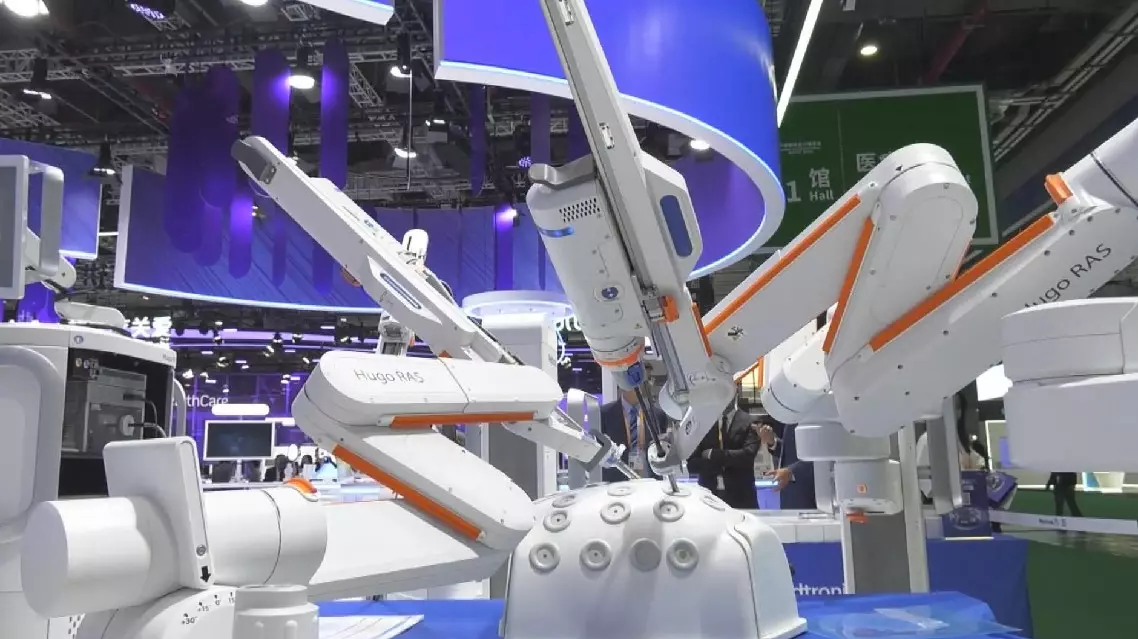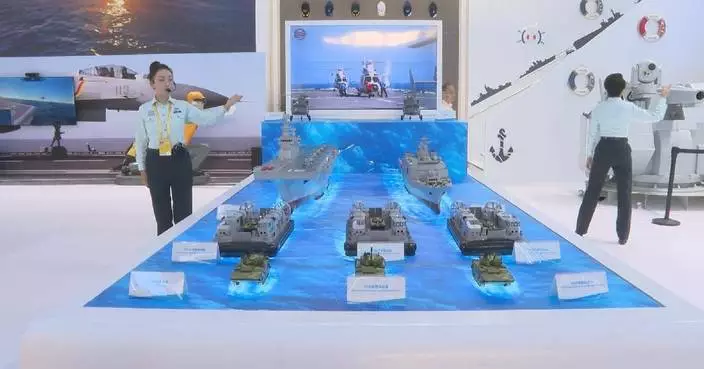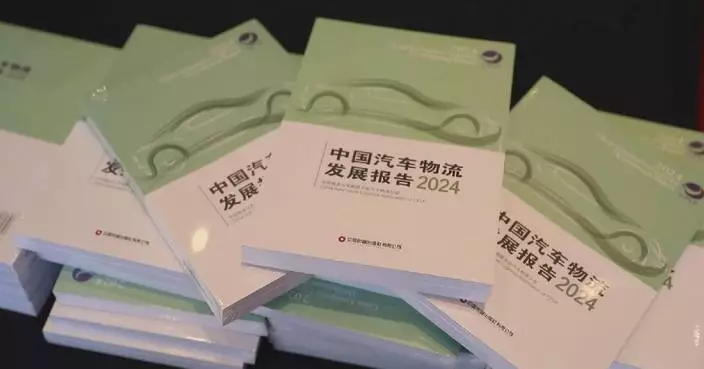A dazzling array of cutting-edge technologies including brain-computer interface and industrial robots on display at the 7th China International Import Expo (CIIE) epitomize the robust development of new quality productive forces, which are empowering the industrial upgrading.
The 7th CIIE, which runs from Nov 5 to Nov 10, attracted 3,496 exhibitors from 129 countries and regions to this year’s business exhibition. The event also marks a significant milestone with the participation of 297 Fortune Global 500 companies and leading industry players from around the world.
Medtronic, one of the largest medical device companies in the world, brought the first brain pacemaker in Asia-Pacific region to the CIIE. Featuring the advanced brain-computer interface and AI technologies, its brain pacemaker will help patients with Parkinson's disease, epilepsy, and other nerve injury conditions.
"Our brain and nervous system are like the vast universe, and intelligent perception [system] can detect and capture signals in the brain related to diseases. For example, epilepsy and many neurological disorders may be cured with the help of explorations through signals associated with consciousness and diseases," said Chen Jianrong, the senior director of Medtronic's neuro regulation business.
Industrial robots are widely deployed across various sectors, including logistics, manufacturing, home services, training, and healthcare, and many companies brought their latest models to the CIIE.
United Family Healthcare, a private healthcare provider in China, has decided to purchase advanced surgical robots at the event, which will soon be put into operation to serve the customers in Shanghai.
"I think the benefits of surgical robot are in several aspects. First, it causes smaller incisions. Second, patients can be discharged more quickly. Third, it allows for greater precision and can suture the wound from 360-degree angles. It is particularly advantageous in endovascular and pulmonary surgeries. I believe that the popularity of surgical robots in China will grow rapidly in the coming years," said Wu Qinan, the CEO of United Family Healthcare.
Exhibitors highlighted that with the help of AI technology, industrial robots are now capable of self-learning. In the future, these robots will further empower a broader range of industries.
"[The robots] are widely used in several industries. The automotive manufacturing industry is the most advanced industry [in using the industrial robots]. The electronics and home appliance industries are adopting a large number of robots. Then industries like textiles, food, and logistics can also increasingly introduce mechanical automation products. The traditional industries will face a major industrial transformation," said Liu Xiaobing, the deputy general manager of Nachi-Fujikoshi (China) Co., Ltd.

Innovative technologies at CIIE empower industrial upgrading









